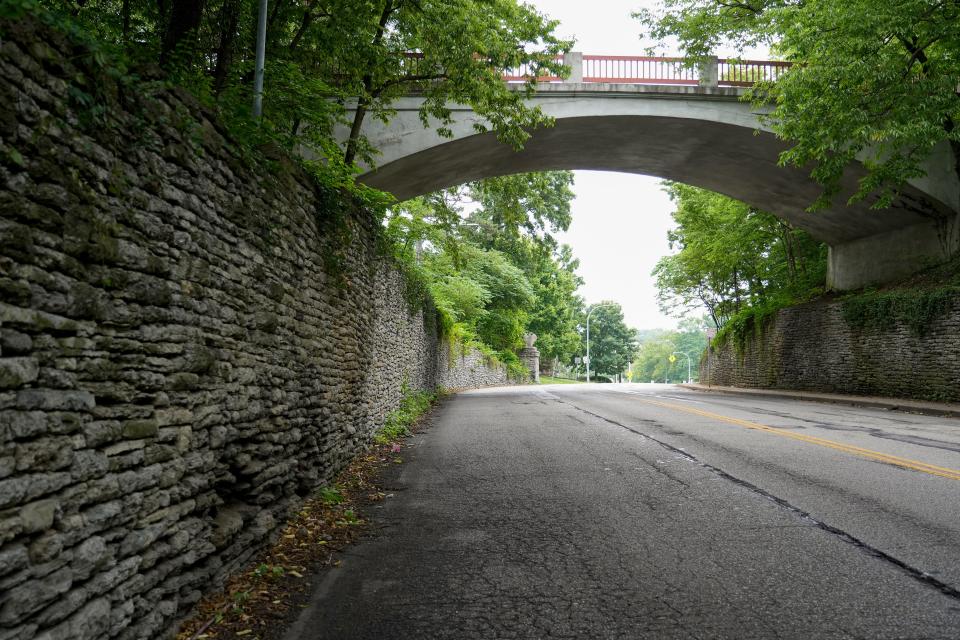Biden administration sends $10M to Cincinnati to fight landslides
- Oops!Something went wrong.Please try again later.
Cincinnati will get just over $10 million to address damage from landslides.
The U.S. Department of Transportation awarded the city a $10.1 million grant from infrastructure programs, according to Greg Landsman, a U.S. Representative from Cincinnati.
“As we deal with increasingly volatile weather, landslides have impacted some of the city’s busiest roads,” Landsman said in a Monday press release. “This federal funding will make it safer for folks to get to and from work and school.”

The city identified 10 projects with a total price tag of $12.6 million in its grant application. They are located in nine neighborhoods – Riverside, South Cumminsville, Villages at Roll Hill, East End, Sedamsville, Mount Auburn, Linwood, South Fairmount and CUF (Clifton Heights, University Heights and Fairview).
The grant is “a major win for environmental justice, stability and climate resiliency,” Cincinnati Mayor Aftab Pureval said in Landsman's press release.
“This grant provides a unique and incredible opportunity for us to mitigate threats in our most vulnerable hillside areas, rather than having to respond to catastrophic landslides after they happen,” he said.
Money will pay to stabilize slopes, fix failing retaining walls or build new walls. The dollars will come from a grant program called Promoting Resilient Operations for Transformative, Efficient and Cost-Saving Transportation, which was funded by the Biden administration’s Bipartisan Infrastructure Investment and Jobs Act.
Geology + development = 'hillside movement'
Cincinnati has about 7,300 retaining walls running 173 miles, according to a 2020-21 city report on that part of the city’s infrastructure. The city’s Department of Transportation and Engineering maintains 1,619 of them, a total of more than 53 miles, with the balance owned by Hamilton County, the Ohio Department of Transportation and other public or private entities.
The city’s “undulating terrain” stresses its retaining walls, a city webpage explains.
“Local geology and past development practices have left many miles of roadway affected by hillside movement,” the site says, noting that city transportation officials inspect all city-managed walls on a six-year cycle.
That's what The Enquirer reported in 2019, concluding that construction and rain have made Cincinnati's hills more vulnerable to landslides over the years.
The mayor highlighted the impact of climate change in applying for funding.
"Despite dedicating local resources to repair aging infrastructure before catastrophic failures occur, we are unable to keep pace as each new storm adds to cumulative wear of already-damaged protective barriers," Pureval said in an Aug. 16, 2023, letter to U.S. Department of Transportation Secretary Pete Buttigieg.
The city said it needed close to $13.1 million through fiscal year 2029 to “maintain structural integrity” of the existing city-managed retaining walls and construct new ones, the city’s latest budget document shows.
Of that, the budget calls for spending $5.3 million in city funds, labeling the balance an “accumulated funding gap.”
The 2020-21 city report rated close to 7% of the city-managed retaining walls as “poor” and close to 0.8% as “critical.” The city could not immediately provide information about those walls.
This article originally appeared on Cincinnati Enquirer: Why is Cincinnati getting a $10 million federal grant?

